Noticing mice around your couch isn’t a good sign at all. As these cute-looking rodents contain viruses & bacteria of various diseases, they can infect you & your family with many incurable diseases. If you notice a single one moving around your couch, there’s a high chance that there are more of them living inside your couch. But the main question is, how and why did they get there? Is it possible to get the mice out of your couch? The answer is YES. And in this article, we’ll discuss how to identify mouse infestations & the most effective ways to get mice out of your couch.
Why Do Mice Get Attracted to Your Couch?
First, you need to understand why the mice are attracted to your couch more than anywhere else in the house. Let’s look into some reasons that can be counted on:
Easy Access to Food And Nesting Materials:
Couches are generally placed in the living room or near the kitchen. Where food items are easily available. Food droppings, remaining food on the plates, pet food bowls, or other food sources become easily accessible for the mice. From where they can gather food for themselves pretty easily. Moreover, the raw materials they need for nesting (foam, paper shreds, wood chippings, etc.) are easily available on & around the couch.
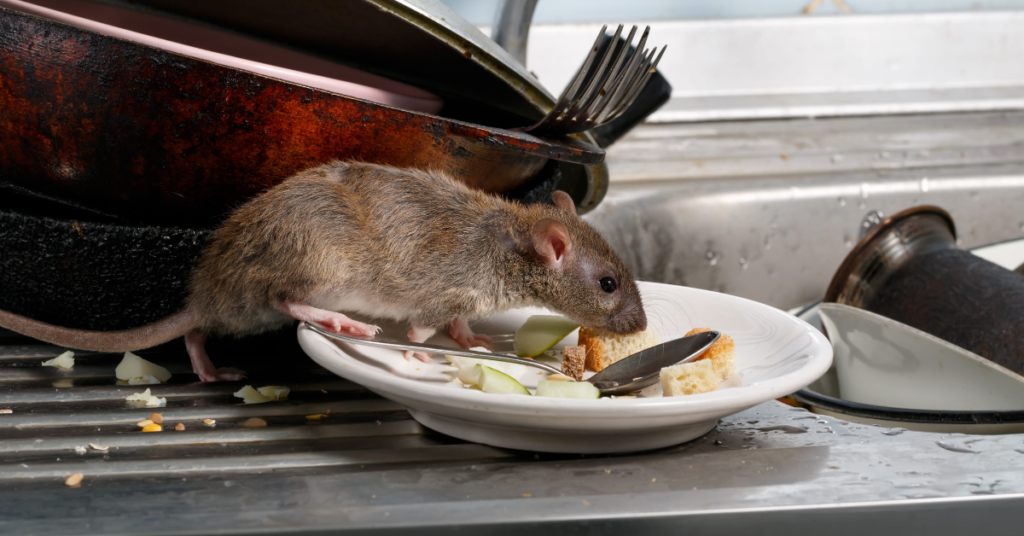
Easy And Safe Shelter:
Like humans, mice also need a warm and cozy place to stay & live. The soft foam & fabric of the sofa provide the opportunity for them to stay tucked in & increase their numbers while safely staying away from your pets or any natural predators, like cats. They start feeling safe there. And that’s the last thing you would want to happen to your couch.
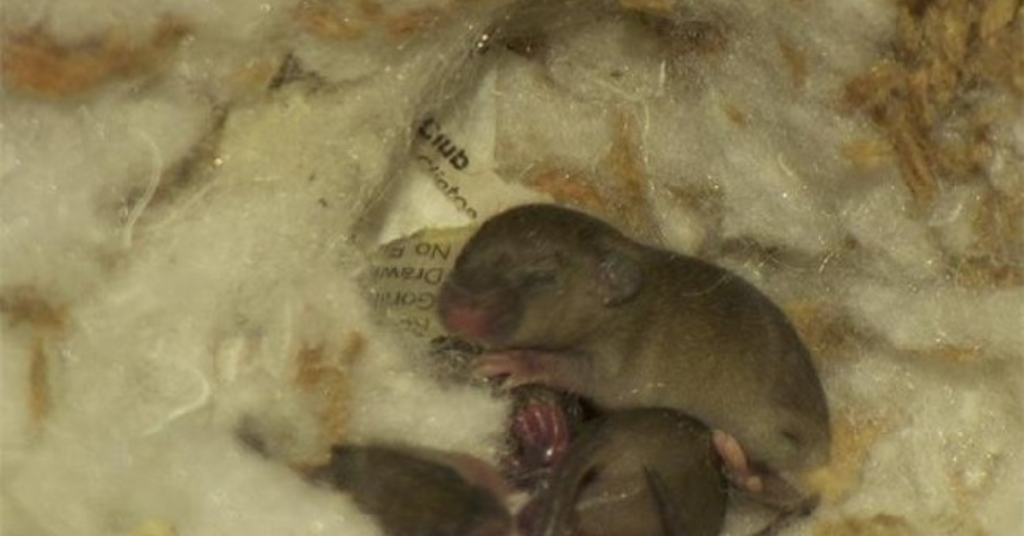
Ways to Identify Mouse Infestations on Your Couch:
1. Gnaw Marks:
When mice enter your couch, they start gnawing on the fabric, inside materials, wooden frames, and any other parts that leave a dime-sized hole in that particular place. They do this to keep their growing teeth in shape. Not only wood, furniture parts, cardboard, or other carbon materials, mice also gnaw on electric wires, which can cause an electric hazard in the house. So if you see a sudden small hole in your couch, or any damaged electric wire in the house next time, don’t blame your pets, check for any mice first.
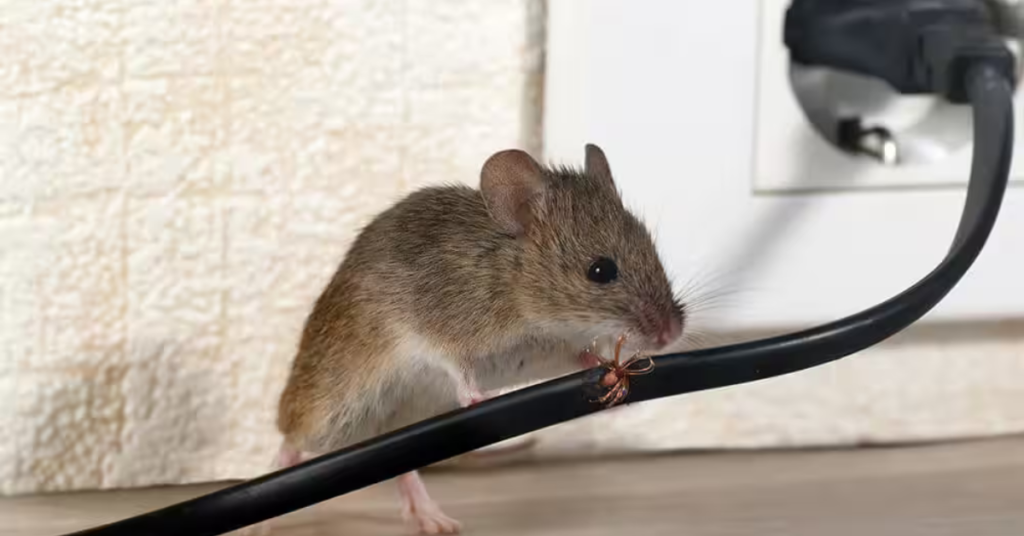
2. Scratching or Scurrying Sound:
Mice, in general, make their moves in the night silently. So it’s really hard to notice the sound. But if you listen carefully, you will hear a light scratching sound from the inside & around the couch at night. This could mean a mouse has made your couch its home, and there could be more in your house. This scratching sound generally comes when a mouse is on the move, building its nest, or in search of food.
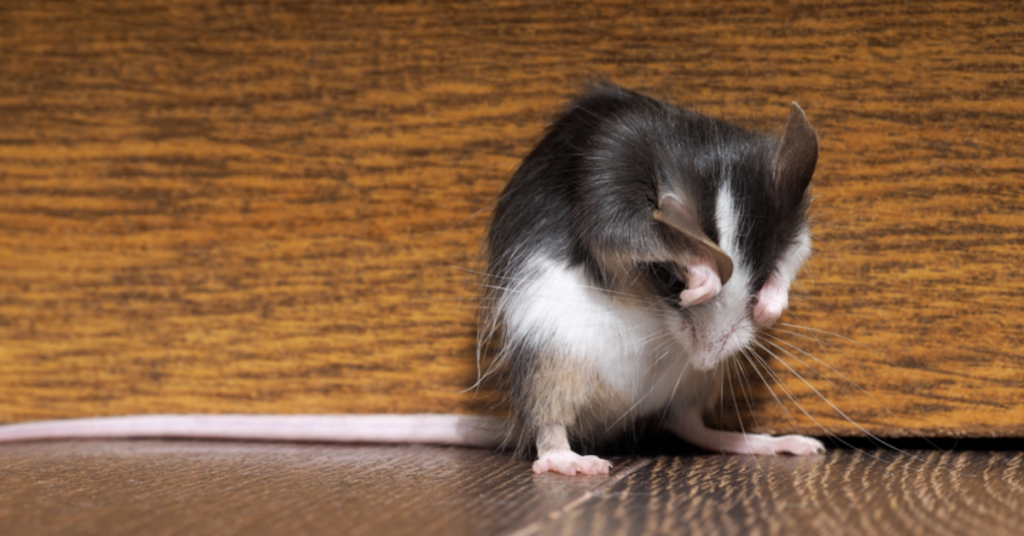
3. Mice Urine and Droppings:
Mice’s urine has a significant odor, like ammonia. Yes, your pet or babies can also wet the couch. But mouse urine has a distinctive smell. And as the infestations increase, the smell will also increase. In the case of mouse droppings, they’re small, approximately 14 inches in size, and have pointed ends. New droppings look shiny, whereas old droppings look dried. The amount and the texture indicate the number of mice and the degree of infestation in your house. If you notice old, dried droppings around the couch, your couch might be already infested, and if there are new droppings around the couch, the infestation might be just starting.
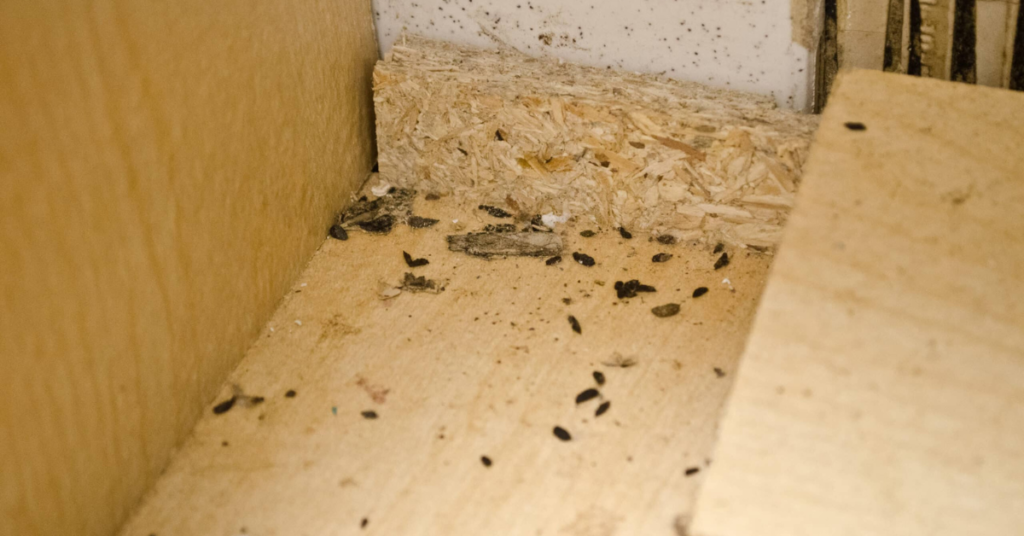
4. Pet Behaviour:
Did your pet start behaving oddly in recent days? Did they start sniffing around the couch without any reason? Your pet brings you to the couch repeatedly? It may be a sign that there’s a mouse infestation on your couch. Your pet (cat or dog) is behaving like that because they sensed the mouse infestation way ahead of you. And they can do it because of their higher senses of smell & hearing.
5. Dead or Alive Mouse:
If you start noticing a dead or alive mouse in your house or start noticing a weird movement around your couch but don’t see anything when you look in that direction, then it may be a clear sign that the mouse has made your couch their home.
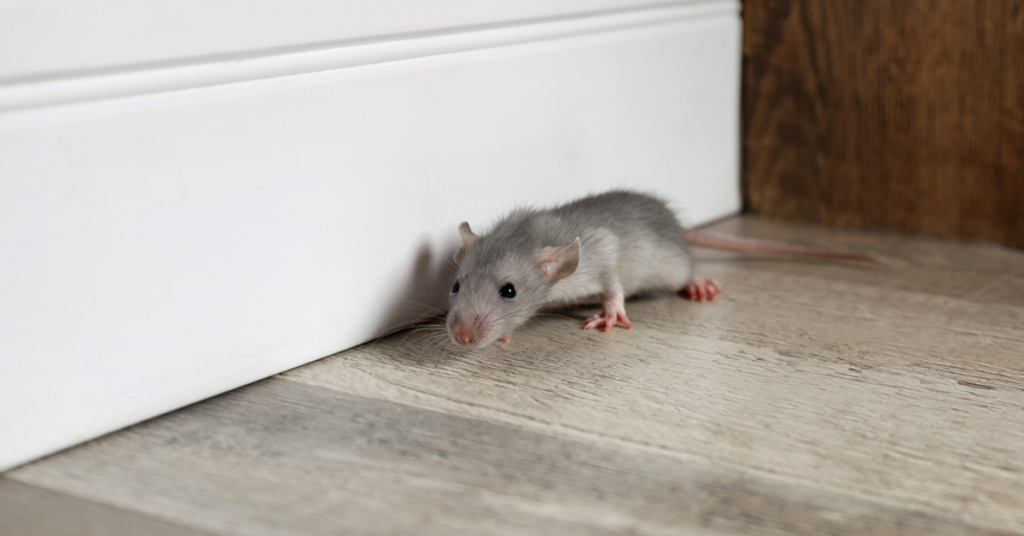
Or you can watch this video-
Steps to Get Mice Out of Your Couch:
1. Inspect for Signs of Mice:
Look for mouse droppings, nesting materials, gnaw marks, or urine stains on or around your couch, or for female mice in your house. If you notice any of these signs, there might be mice inside your couch. Be sure to act quickly in this case. A female mouse can produce up to 10 litters of mice, each litter contains at least six mice. So if you don’t act quickly enough, the number of mice will increase rapidly, and soon the situation will be out of your control.
2. Clean Your Couch and Surroundings:
Vacuum the mouse droppings & nesting materials around the couch. Properly clean your couch with soap and water. Clean surroundings discourage mice from staying on your couch. In these circumstances, whether they’ll leave the couch or die there.
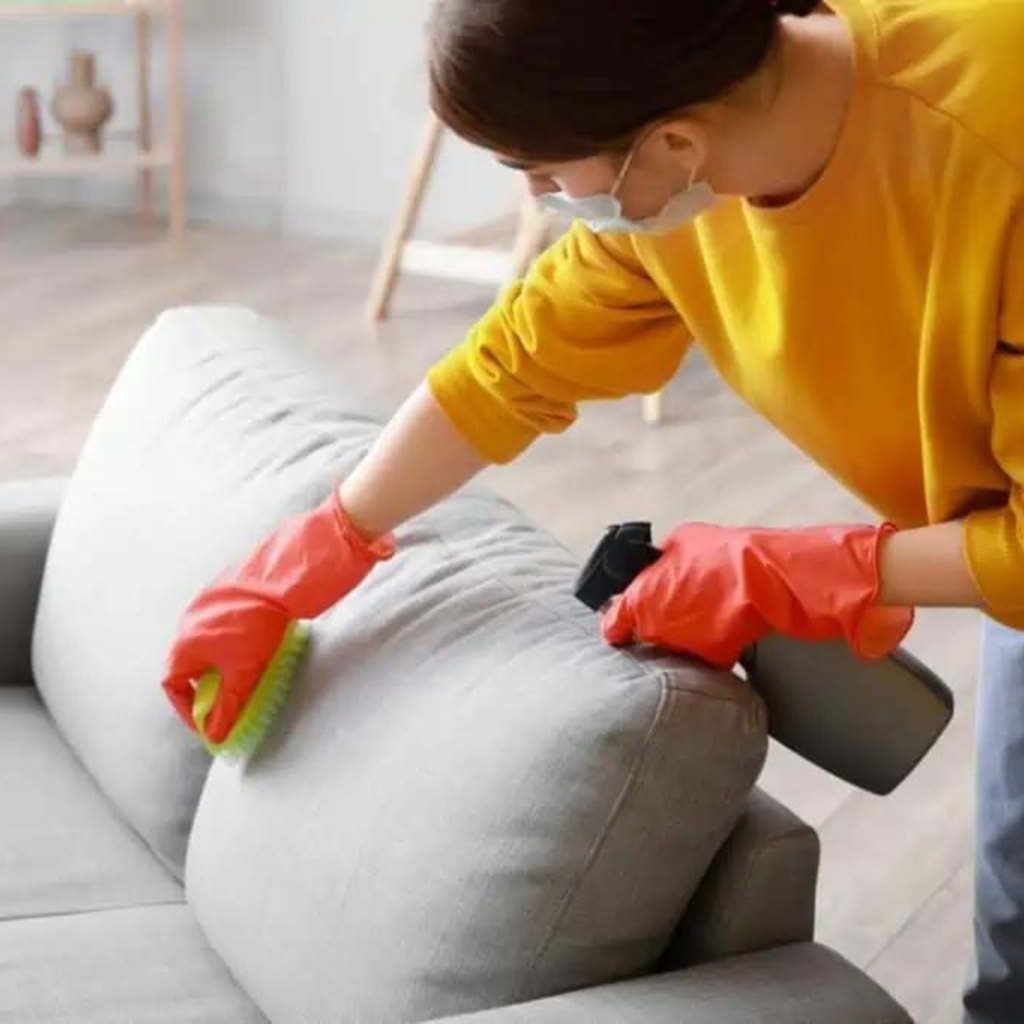
3. Seal the Openings and the Food:
If you see any openings or cracks in your house or in your couch from where the mice could enter, be quick to seal them. Put your food in an airtight container. Clean your plates and your pet’s food dish immediately after the meal. The dirty plates or open food sources are where the mice get their food. They are staying on your couch because of the easy access to food & shelter. If they can’t get easy access to these, they are more likely to leave your place.
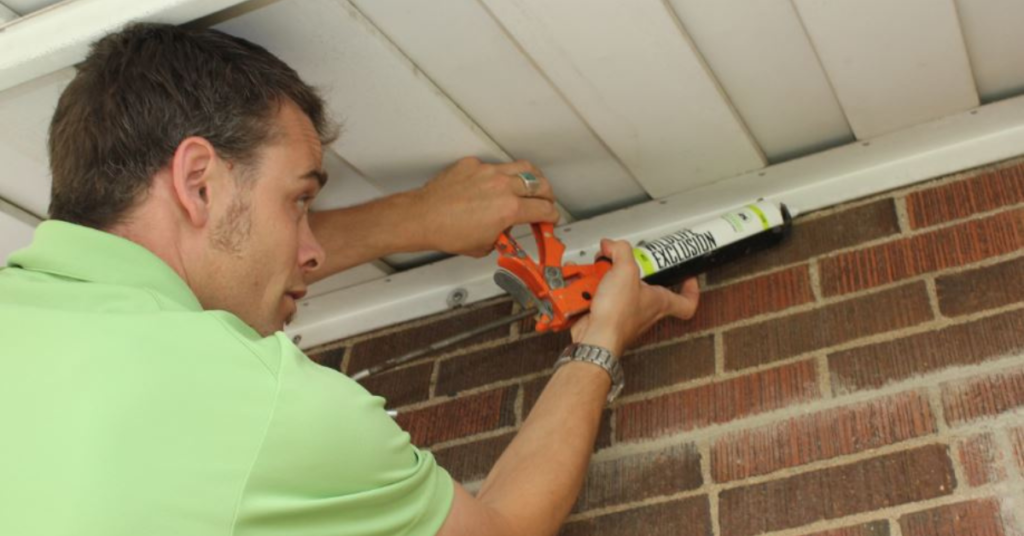
4. Use Peppermint:
Peppermint has a strong smell, which is unbearable for mice & other rodents. Mix peppermint essential oil with water & white vinegar in a spray bottle. Spray the solution around your couch and the cracks or crevices where the mice can hide. Be sure to reapply the peppermint spray from time to time, as it loses its effect after a while.

5. Use Cloves and Cheesecloth:
You can also use a few cloves wrapped in cheesecloth if you don’t want to use peppermint. Cloves have a strong stingy smell which is unattractive to mice & many other rodents. And so they stay away from that particular place from where the smell comes. You just have to wrap a few cloves in cheesecloth & put a few of these around your couch & your house.

6. Use Mothballs:
You can also use mothballs as an alternative to peppermint spray. Put a few mothballs in an airtight container & keep the containers in your room. Mothballs are poisonous by nature. So be sure to keep them away from your children’s or pets’ reach.

7. Use an Ultrasound Repeller:
You can find many ultrasound repellers in markets that you can use to repel mice and other rodents from your house. These emit a vibration that is intolerable for the mice. It can be useful when the infestation is just starting in your house or when it’s at a moderate level. This technique is not that effective when it comes to dealing with large infestations.

8. Use Traps:
There are various kinds of traps available on the market that you can use to catch the mouse. Some of them are:
Snap Traps:
These are the most used traps. To use these, you have to put bait in them & wait for the mice to come. Placement is the trickiest part in this case. You have to place them around your house in places where the mouse can hide, like under the sink, near food sources, near the trash, etc. You can use a piece of cheese or greasy bacon as bait. You can also put two traps one after another to make sure that the mice can’t escape the trap. Make sure the baits are small so the mice can’t pick them up without getting stuck in the trap.
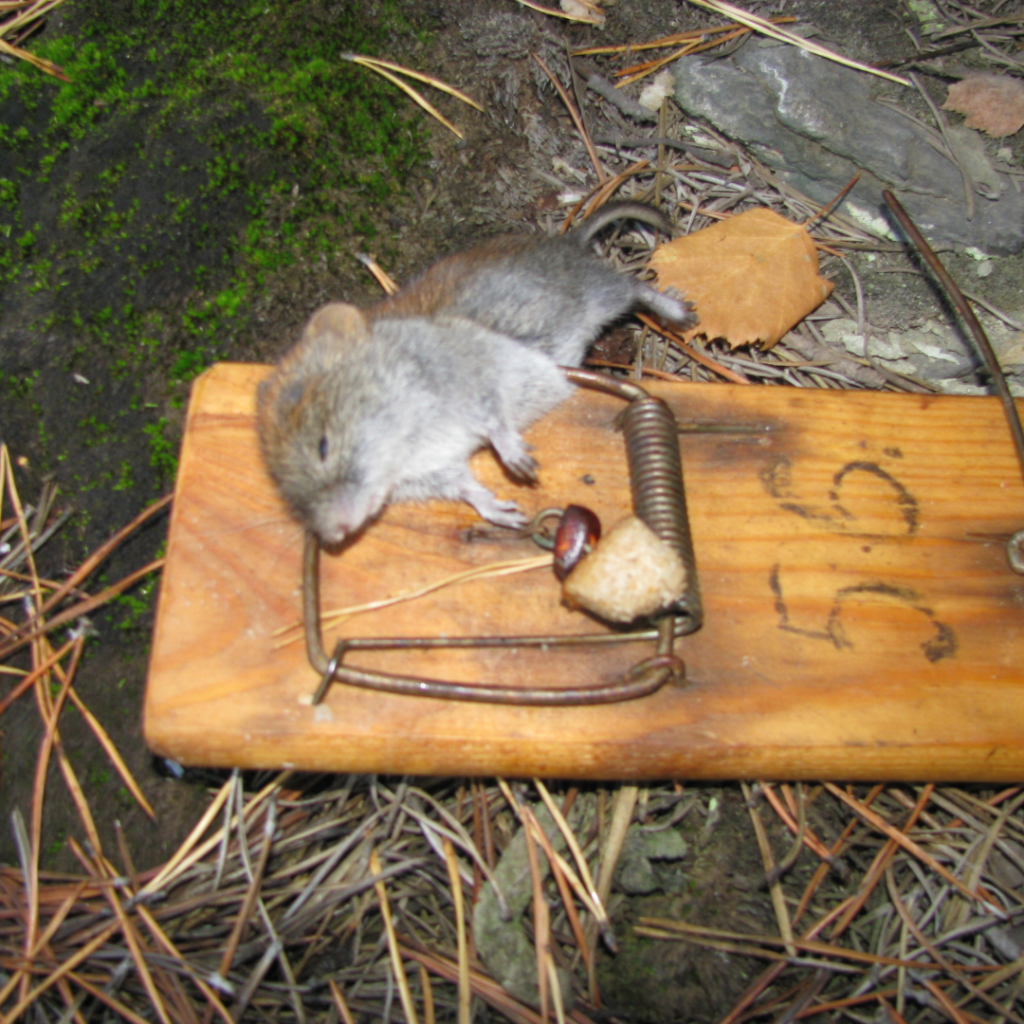
Live Traps:
In these traps, you need to put bait in the chamber, put it in places where the mice can hide, & wait for them. When the mice enter the trap chamber, the door closes automatically. And then you can safely relocate them outside your house.
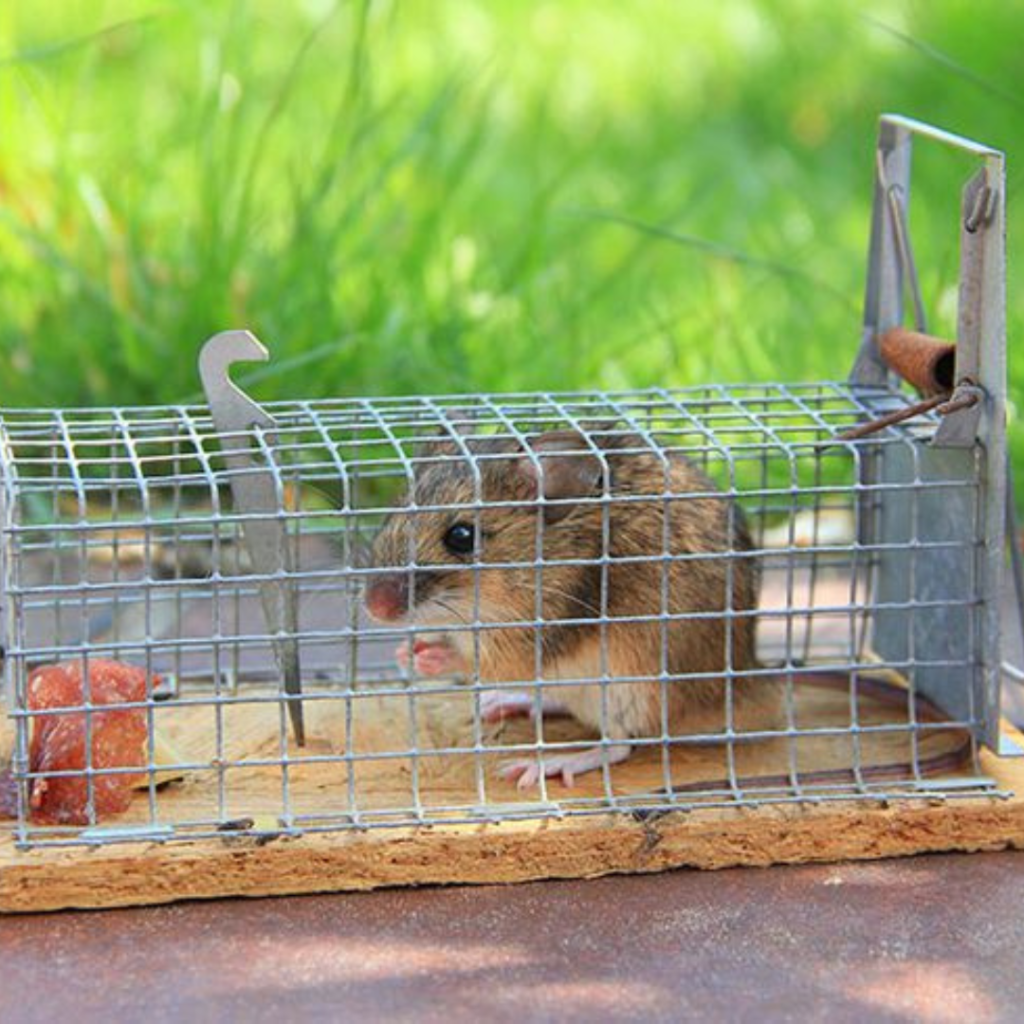
Glue Traps:
These traps are boards with glue in them. Mice or other rodents get stuck in it. Once stuck, they can’t escape the trap unless you release them. Using these traps can be messy, as the mouse can die in the trap and spread odor all over the house. Be sure to wear gloves when you try to release them, or else your hand can also get sticky and messy from this trap.
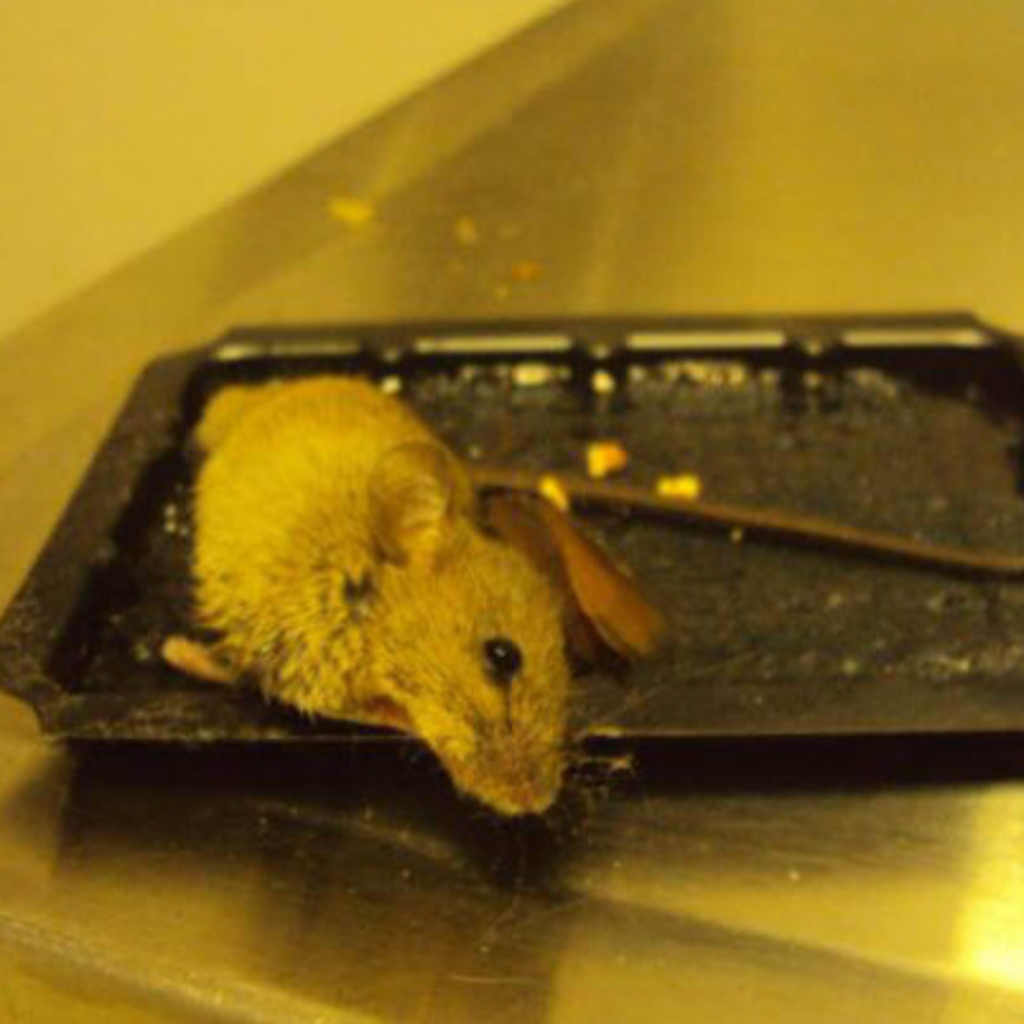
Electric Traps:
These traps are basically an electric chamber that kills mice & other rodents with a fatal electric shock. These chambers are designed not to shock humans or pets.

Among these traps, you can select the perfect one for your house according to your house environment & preferences.
9. Adopting a Cat:
Cats are natural predators of mice. If you adopt a cat, not only will your problem be solved, but you’ll also get a great companion for your lonely times. A cat will also get permanent shelter because of you. But before you adopt a cat, you should keep in mind that you need to take good care of it. Also, some cats like to play a little with their prey before they kill it. So if you have no issues with that, you can go for any cat. Or else, you have to be selective & check the cats’ behavior to see if it’s suitable before bringing a cat into your house.
10. Last Resort, Call in the Pros:
If everything else fails, call in the professionals for help. They can help you with your mouse infestation problem with their professional pest-control tricks & solutions.
Final Words:
Sometimes it’s really hard to deal with a mouse infestation. Especially if you’re late to detect it. But if you keep your house clean, the chances of a mouse infestation will decrease, as mice like to live in dirty places. If your house gets mouse-infested, you can try the steps mentioned above & get rid of them easily. We hope you found this guide helpful.
FAQ:
Is it ideal to sleep in a room with mice?
Absolutely NOT. Mice are most likely to carry different types of viruses or bacteria with them. And if they get a chance to bite you, you can get seriously ill.
Can mice climb up my bed?
Yes, they can. So if you hear scurrying around your bed at night, be careful, it can be a mouse trying to climb up your bed.
What is the safest way to get rid of a mouse?
Try using peppermint, cloves, snap traps, or live traps. Peppermint or cloves will keep mice & other rodents away from your home, they’re also safe for your children & pets. And by using snap traps or live traps, you can easily relocate them after catching them.
Can an old sofa outside my house be inviting for mice?
Yes. Generally, mice like to live in dirty, unhygienic places where they can find food, shelter, and hiding spots from their predators. And as they eat from dirty & easily accessible places, they could be living near a dustbin, near the trash, or even inside the old couch outside your home.
What kills mice the most?
Zinc phosphide is an acute poison that can kill mice within 20 to 48 hours.
Is mouse urine harmful to humans?
Humans can get affected by HPS when they breathe in hantaviruses from the air. It can spread in the air from rodent urine or droppings. Even if humans touch their noses or eyes after touching the droppings or urine, the virus can enter our bodies.
What smell do mice hate the most?
Mice hate the smell of clover, garlic, onion, hot peppers containing capsaicin, house ammonia, used coffee grounds, peppermint, eucalyptus, white vinegar, and citronella oil the most. You can use these as natural remedies to keep mice away from your home.
Can mice bite me in sleep?
Mice generally don’t bite humans even if they are sleeping. So unless a mouse feels threatened because of you, you are safe in this case



